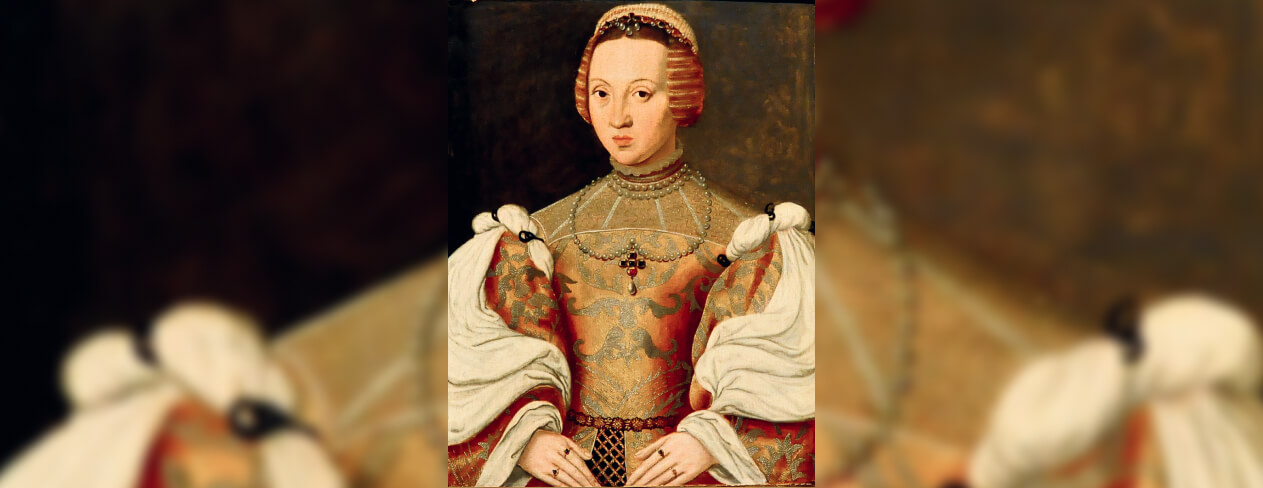
Archduchess Isabella, the daughter of Philip the Handsome and Joanna of Castile, was born on 18 July 1501. Together with her sisters and her elder brother, the future Emperor Charles V, she was carefully raised and educated in the Humanist spirit at the court of Brussels by their aunt Margaret, the Regent of the Austrian Netherlands.
At the age of fourteen, she was married off to Christian II of Denmark, who was twenty years her senior. The favourable union enhanced the Austrian Netherlands’ access to trade in the Baltic region. From a personal perspective, the first years of the marriage were overshadowed by the presence of the King’s mistress at court, but the royal couple’s relationship improved after her death. Isabella was popular and beloved among her subjects – quite unlike her husband. Christian II’s attempts to maintain the Kalmar Union of the Scandinavian kingdoms brought him briefly to the Swedish throne, but he was soon deposed in a rebellion. His radical reforms in Denmark led to a coup, and the King found himself deposed once again. The Danish nobility, seeking to maintain good relations with the powerful House of Habsburg, was willing to make several concessions to Isabella – but the Queen chose instead to follow her exiled husband, along with their three surviving children.
For the few years left to her, Isabella travelled from court to court seeking support for her husband’s restoration. In Germany, she developed a sympathy for Protestantism and even once received Protestant communion. However, her family urged her not to show her interest publicly.
Isabella, Queen of Denmark, died in 1526 at the age of 24. Only two of her six children reached adulthood, and only one of them – Christina, Duchess of Lorraine – had children of her own.
Access to the Metatext via placing an order for an augmented product. See Terms of Use